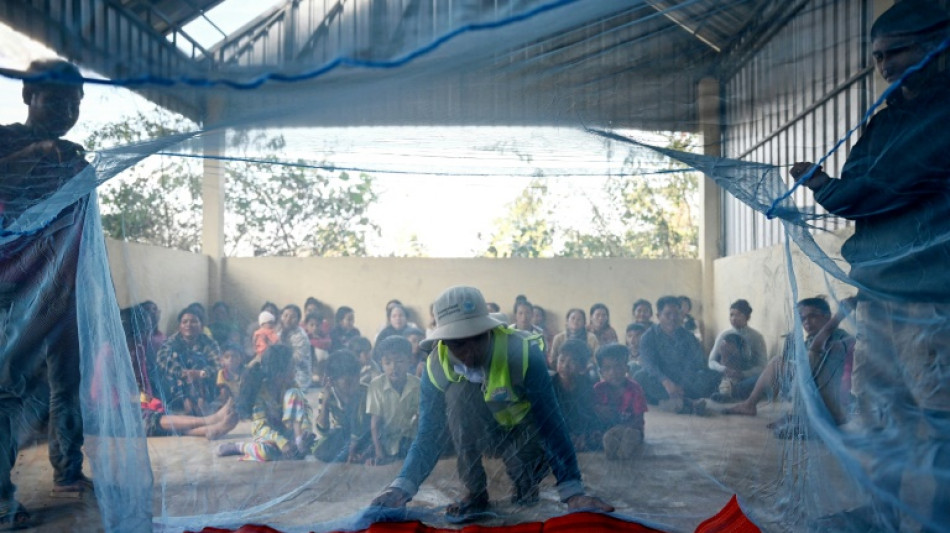
-
 Jackson throws four TD passes as Ravens rout Dolphins
Jackson throws four TD passes as Ravens rout Dolphins
-
NBA champs Thunder roll past Wizards, Bucks and Spurs win

-
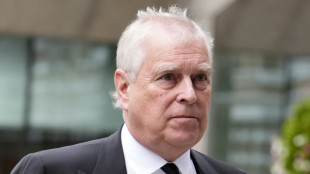 UK's Andrew in freefall, stripped of queen's protection
UK's Andrew in freefall, stripped of queen's protection
-
Real Madrid and Barcelona aim to shake off Clasico consequences

-
 Ambitious Paris FC making steady progress after landing in big time
Ambitious Paris FC making steady progress after landing in big time
-
Rebuilt Leverkusen hope to reignite Bundesliga rivalry at Bayern

-
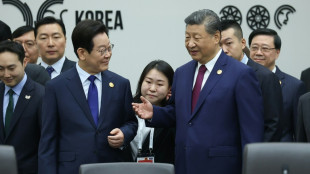 Xi primed to meet Japan, Canada leaders after Trump summit
Xi primed to meet Japan, Canada leaders after Trump summit
-
Australia coach Schmidt pleads for Edmed patience ahead of England clash

-
 Liverpool feel pressure to end 'crisis' run, Man City test Bournemouth limits
Liverpool feel pressure to end 'crisis' run, Man City test Bournemouth limits
-
Farrell eyes 'reset' as Ireland-All Blacks ready for 'Battle of Chicago'

-
 Asia markets mostly up on heels of Apple, Amazon earnings
Asia markets mostly up on heels of Apple, Amazon earnings
-
Jones wants Japan to enhance 2015 legacy against South Africa
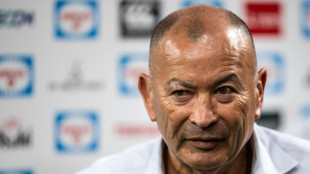
-
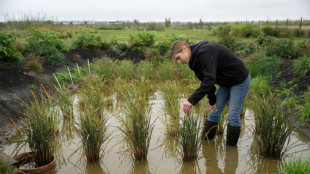 Growing rice in the UK 'not so crazy' as climate warms
Growing rice in the UK 'not so crazy' as climate warms
-
Australia say 'let ourselves down' after India end world domination
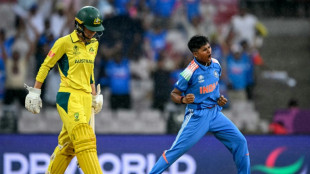
-
 AI cannot make cinema, director Linklater says
AI cannot make cinema, director Linklater says
-
After delays, Egypt set for lavish opening of grand museum

-
 What we know about the downfall of Andrew, born a UK prince
What we know about the downfall of Andrew, born a UK prince
-
Desperate Dodgers mull using Ohtani as relief pitcher

-
 Blue Jays vie to close out sputtering Dodgers in World Series
Blue Jays vie to close out sputtering Dodgers in World Series
-
Indigenous Australians celebrate historic state treaty

-
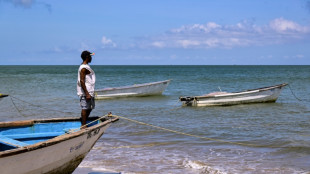 Caught between Venezuela and US, Trinidad fishermen fear the sea
Caught between Venezuela and US, Trinidad fishermen fear the sea
-
Latest NFL Chiefs-Bills duel has both chasing division leaders

-
 Sierra Leone chases rare repeat in Breeders' Cup Classic
Sierra Leone chases rare repeat in Breeders' Cup Classic
-
King Charles strips Andrew of royal titles, Windsor home
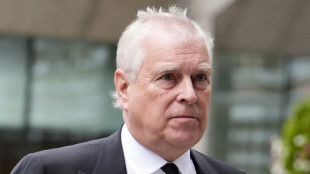
-
 Sales of 'services' help Apple beat earnings forecasts
Sales of 'services' help Apple beat earnings forecasts
-
Beyond words: '67' crowned 'Word of the Year'
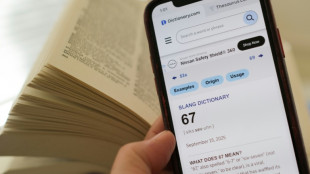
-
 Amazon shares surge as AI boom drives cloud growth
Amazon shares surge as AI boom drives cloud growth
-
Brazil boasts drop in deforestation ahead of UN climate talks
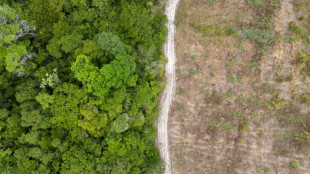
-
 Russians marking Stalin's repression warn against return to past
Russians marking Stalin's repression warn against return to past
-
Stocks mostly fall as investors digest Trump-Xi talks, earnings
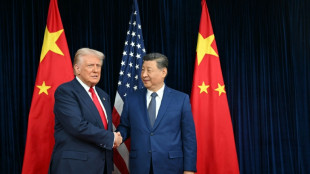
-
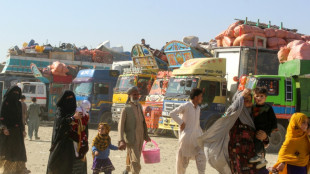 Turkey says Pakistan-Afghanistan talks to resume
Turkey says Pakistan-Afghanistan talks to resume
-
Record-breaking India upset Australia to reach World Cup final

-
 US to limit refugees to record low 7,500, mostly white South Africans
US to limit refugees to record low 7,500, mostly white South Africans
-
King Charles to strip Andrew of royal titles, residence: palace
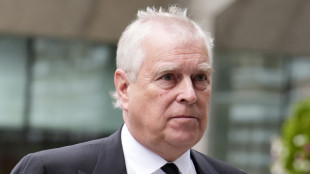
-
 Sinner marches into Paris Masters quarters, Bublik downs Fritz
Sinner marches into Paris Masters quarters, Bublik downs Fritz
-
Devastated Caribbean assesses damage as hurricane eyes Bermuda
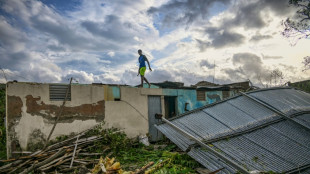
-
 Trump stirs tensions with surprise nuclear test order
Trump stirs tensions with surprise nuclear test order
-
100 US local leaders will attend COP30 in 'show of force'
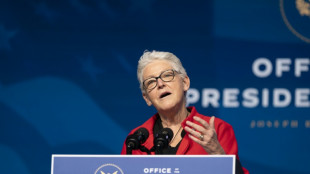
-
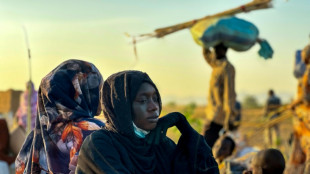 UN warns of 'atrocities,' 'horror' in Sudan as RSF advances
UN warns of 'atrocities,' 'horror' in Sudan as RSF advances
-
Rodrigues hits ton as India stun Australia to reach Women's World Cup final

-
 Trump's order on nuclear testing: what we know
Trump's order on nuclear testing: what we know
-
Spalletti returns to football with Juventus after Italy flop

-
 Rodrigues hits ton as India chase 339 to stun Australia in World Cup semis
Rodrigues hits ton as India chase 339 to stun Australia in World Cup semis
-
Saudi chases AI ambitions with homegrown firm pitched to global investors
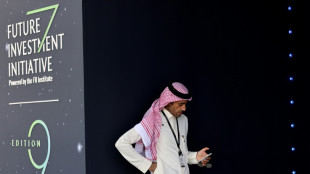
-
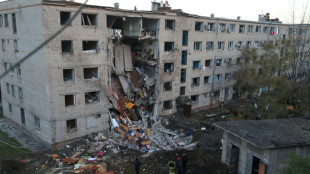 Russia batters Ukraine energy sites with deadly aerial strikes
Russia batters Ukraine energy sites with deadly aerial strikes
-
Stocks diverge as investors digest Trump-Xi talks, earnings
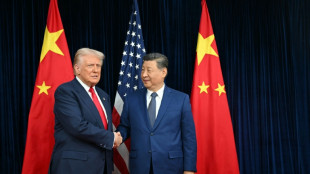
-
 'Better to go to prison': Israeli ultra-Orthodox rally against army service
'Better to go to prison': Israeli ultra-Orthodox rally against army service
-
Bublik downs fourth seed Fritz to reach Paris Masters quarters

-
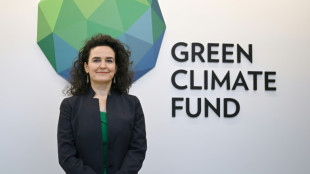 UN climate fund posts record year as chief defends loans
UN climate fund posts record year as chief defends loans
-
Man Utd must ignore outside noise to go in 'right direction', says Wilcox


Cambodia nears Khmer Rouge survivor's dream of eradicating malaria
Cambodian scientist Yeang Chheang has spent six decades fighting malaria -- even in the Khmer Rouge labour camp where his wife and baby died -- and stands tantalisingly close to fulfilling his life's work.
The kingdom is stepping up a "last mile" push to wipe out the mosquito-borne disease, focusing on hard-to-reach communities in remote, forested or mountainous areas.
From 170,000 cases and 865 deaths from malaria in 1997, only 355 cases were recorded last year -- and not a single fatality has been reported since 2018.
The hope is for zero cases this year -- a remarkable turnaround for a country that was formerly an epicentre of multi-drug resistant strains. And the landmark would be unthinkable without the work of Yeang Chheang, who rebuilt the malaria control programme after the fall of the Khmer Rouge.
The communist regime murdered, starved or worked to death around two million people during its 1975-79 rule -- including Yeang Chheang's three brothers, sister, mother, wife and son.
Aged 17, he began training as Cambodia's first medical entomologist with a French expert in 1954.
He helped with the first malaria elimination pilot project, setting up a lab under a leaf-roofed office, catching mosquitoes and larvae for experiments when he was deployed to a malaria hotspot in the northeast in the 1960s.
"When we started the work, it was so difficult because we lacked people with good knowledge," the 87-year-old told AFP from his home in Phnom Penh.
- Starved to death -
When the Khmer Rouge took power, Yeang Chheang and his family were sent from Phnom Penh to a labour camp where his wife and baby son starved to death.
Despite fearing for his life, he continued treating malaria patients, secretly handing out pills he had picked up from piles of medicine dumped in the streets when he left Phnom Penh.
That could have seen him killed for violating Khmer Rouge rules.
But the cadres spared him after a top commander fell sick with malaria.
"Because of my medicines, I could survive and did not have to work hard carrying soil or digging canals," Yeang Chheang said.
"The tablets saved our lives," he added, referring to himself and his three other sons.
After the Khmer Rouge was ousted in 1979, he joined with a handful of others to restore the national malaria control programme.
There were multiple outbreaks in subsequent years, and he led his team on foot through villages riddled with landmines in the former Khmer Rouge stronghold of Pailin, a hotpsot for drug-resistant malaria.
- 'Last inch' -
Malaria, caused by parasites transmitted via mosquitoes, was for decades a major cause of illness and death in Cambodia.
The government launched a national action plan in 2011, aiming to eliminate all cases in the country by 2025.
Within three years the kingdom stopped drug-resistant malaria, and in 2020 launched the so-called "last mile" efforts.
Nearly two-thirds of last year's reported cases were in the remote northeast, where local volunteers have signed up to help.
Nhoun Niyok, 37, joined the campaign a decade ago in Pu Kesh village in Mondulkiri province.
He carries out rapid tests, administers medicines and advises people on using insecticide-treated mosquito nets to protect themselves.
"I am so happy I could help my community and I think villagers won't be sick with malaria again," he said.
He last recorded a malaria case in his village in September.
"Perhaps, the dream will come true," he said. "It looks like malaria will be gone soon."
If there are no malaria cases this year, Cambodia would need to sustain zero indigenous infections for another three consecutive years from 2026 to be certified as malaria-free by the World Health Organization (WHO).
Success would make it only the second country in continental Asia to achieve the feat, after China.
"This year, we are entering the last inch, not last mile anymore," Huy Rekol, director of the National Center for Parasitology, Entomology and Malaria Control, told AFP.
Marianna Trias, the WHO representative to Cambodia, added that certification would set "a powerful example for other countries, inspiring them to pursue the same goal".
Experts warn climate change and cross-border transmission involving migrants and mobile populations could yet derail Cambodia's efforts.
And some of its initiatives were funded by the US Agency for International Development (USAID), with no clarity yet on whether they will be impacted by the Trump administration's aid freeze.
There were an estimated 263 million malaria cases worldwide in 2023 -- up 11 million on the previous year -- and 597,000 deaths, according to the WHO.
Despite Cambodia's success, Yeang Chheang considers global elimination of the disease "absolutely impossible" due to human migration.
"It will be around," he said. "I believe it won't be totally eliminated."
D.Schaer--VB




